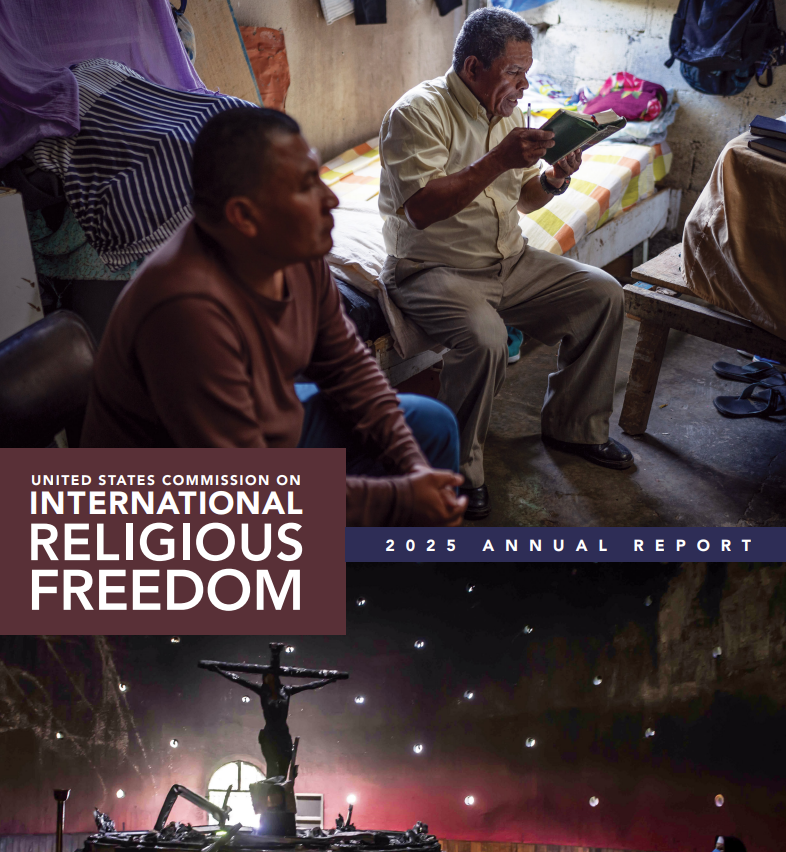Washington, D.C. – March 2025
The United States Commission on International Religious Freedom (USCIRF) has released its 2025 annual report, painting a concerning picture of declining religious freedom in Bangladesh following months of political instability and violence. The findings document increased attacks on minority communities, controversial government rhetoric, and ongoing threats to Rohingya refugees.
Escalating Violence Against Religious Minorities
The report notes a sharp rise in attacks against Hindu communities following the ousting of Prime Minister Sheikh Hasina after deadly anti-government protests left 200 dead. Hindu groups reported widespread vandalism of temples and mob violence, with hundreds allegedly killed in the unrest. While some killings appeared politically motivated, minority communities faced heightened vulnerability amid the power vacuum.
Ahmadiyya Muslims also reported physical assaults and property destruction, adding to a climate of fear. Although the interim caretaker government, led by Mohamed Yunus, pledged protection for minorities, USCIRF found that systematic pressures persisted, exacerbated by misinformation campaigns on social media falsely attributing violence to the new administration.
Government Actions and Blasphemy Rhetoric
Even before the July 2023 protests, religious tensions were inflamed by judicial and political leaders. Two High Court judges publicly advocated for harsher blasphemy punishments, including the death penalty. Former Prime Minister Hasina further stoked divisions by accusing Christians of conspiring to create a separatist “Christian state” in Bangladesh and Myanmar—a claim widely condemned as baseless.
In November, the arrest of Hindu priest Chinmoy Krishna Das on sedition charges sparked violent clashes. Das was accused of disrespecting the national flag during a protest demanding Hindu protections. The incident culminated in the death of a Muslim lawyer and mass demonstrations by 30,000 Hindus calling for government intervention against harassment.
Rohingya Refugees in Peril
The report also highlights the dire conditions for Rohingya Muslims in Cox’s Bazar camps, where refugees faced mob violence and desecration of religious materials. With renewed conflict in Burma driving thousands more across the border, Bangladesh’s caretaker government urged the UN to establish a “safe zone” in Rakhine State to facilitate aid delivery and reduce refugee inflows.
USCIRF’s Concerns and Calls for Action
While the interim government has vowed to address sectarian violence, USCIRF’s findings suggest religious freedoms continue to erode. The commission’s report underscores the need for:
- Accountability: Independent investigations into attacks on minorities.
- Policy Reforms: Repeal of blasphemy laws and condemnation of inflammatory rhetoric.
- Protection: Enhanced security for vulnerable groups, including Rohingya refugees.
The report places Bangladesh on USCIRF’s “Watch List,” urging the U.S. government to prioritize religious freedom in bilateral engagements. As the country navigates political transition, the international community watches closely to see if pledges of tolerance translate into tangible protections for all faiths.
Key Takeaways:
- Hindus, Ahmadis, and Christians faced increased violence and discrimination.
- Blasphemy rhetoric and politicized arrests worsened sectarian tensions.
- Rohingya refugees remain in crisis, with Bangladesh pushing for international solutions.
For further details, access the full report at [USCIRF.gov].





